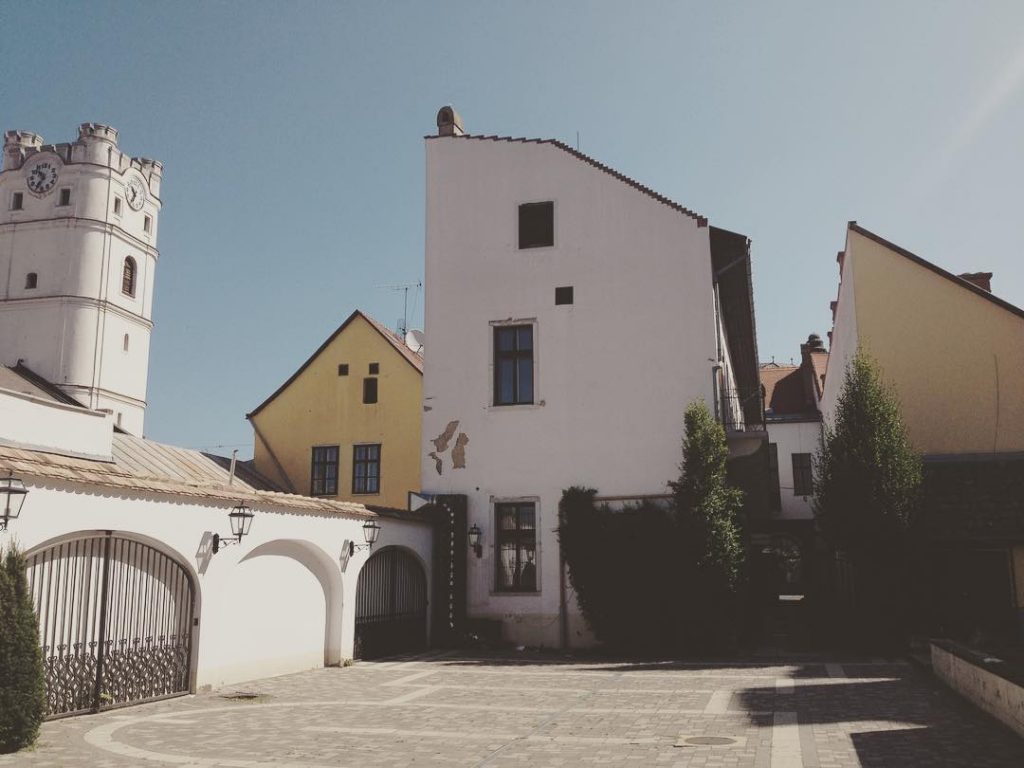The main street of Debrecen, known as Piac street, was once lined with trading houses, and it remained a centre of trade and for hundreds of years. The very first multi-floor dwellings of the town were built here. While the buildings are of simple construction, their facades have many beautiful decorations that deserve special attention.
One of these buildings is the Rickl House at No. 39-41 on Piac Street. The great-grandfather of the world-famous author Magda Szabó (from her mom’s side), József Rickl, was a German merchant, he built this classicist building for his renowned supermarket and his family in the 1820s.

The building is most famous for being the home of the maternal relatives of Magda Szabó who is revered in Hungary and internationally as a towering literary figure of the 20th century, and not just of Hungarian literature. Her works have become world-famous in recent years as her works have been translated into English.
The story goes, that when József Rickl first visited Debrecen, he measured the distance of the main street in steps. He chose this plot because it was in the middle.
There was a winch warehouse behind the first courtyard of the building, and a garden and a vinegar house further back. According to István Süli-Zakar, geographer and author, József Zelmos Rickl was running a spice shop here called “The Turkish Emperor”. On the ceiling of the store was a shark model display hanging and the assistants and the apprentices were storing papers in the mouth of the shark.
On the oak gate, there is a copper lion handle which was back then a sign (totem) for “the well-being of the merchants”. The Rickl House was an important scene of Magda Szabó’s book entitled “Régimódi Történetek” (“Old Fashioned Story”). In the winter of 1848 Petőfi swapped his sword with Lieutenant General József Rickl here. The relic was concealed in the canal during the Russian occupation of Hungary, but then all trace of it was lost during the Second World War.
The Rickl shop ceased in 1913 and the building was “nationalized” in 1951. The last member of the Rickl family living there, Dax Matild, was banished to the laundry room. Nowadays, several shops are operating in the listed building.